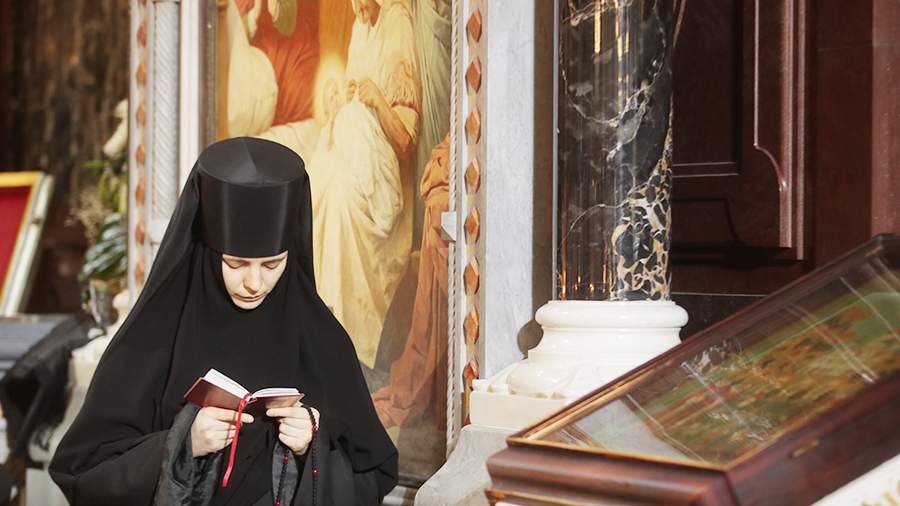June 9 — Holy Spirit Day: history and traditions of the Holy Spirit Holiday

Immediately after the Holy Trinity, Orthodox believers celebrate Spirits Day, a celebration dedicated to the glorification of the Holy Spirit. The holiday does not have a fixed date. In 2025, it falls on the first month of summer. Izvestia tells us about what kind of holiday it is, what traditions and prohibitions have developed on Spirit Day among the people.
What is the number of Spirits of the day in 2025
Dukhov Day refers to the passing church celebrations. It is celebrated the day after Trinity (Pentecost), or on the 51st day after Easter. The Day of the Holy Spirit invariably falls on Monday. In this regard, the holiday has a second name — Dukhov Monday.
This year, Pentecost was celebrated on Sunday, June 8. Accordingly, Spirits Day in 2025 will be celebrated on the first day of the week — June 9th.
Dukhov Day: the essence and history of the holiday
Most major Orthodox holidays have a post—celebration, a period of time that continues the main celebration. For example, the church celebrates Easter for 40 days, and Trinity for a week. In the celebration services, the same motifs are heard as during the main event, deepening and expanding its meaning.
The first day of the celebration in the Orthodox tradition is marked by "special memory" — a celebration dedicated to the central character of the holiday. So, Christmas is followed by the day of Praise of the Most Holy Theotokos, because it was she who brought the Son of God to earth. After the Baptism of the Lord, the church celebrates the memorial day of John the Baptist, the man who baptized Christ.
On Whitsunday, believers remember how on the 50th day after the Resurrection of the Lord, the Holy Spirit descended upon the apostles, giving them the opportunity to speak in different languages. It is believed that it was at this moment that the Christian church was born, so the next day the "special memory" of one of the three divine hypostases is celebrated.
Trinity is one of the oldest church holidays, it began to be celebrated already in the I–II centuries. Spirits' Day as a separate celebration appeared only in the 9th century, when a special canon of the Holy Spirit appeared in the Studio typicons. Before that, the 51st day after Easter was dedicated to the Acts of the apostles.
In Russia, the day after Pentecost began to be celebrated in the 14th century among the followers of St. Sergius of Radonezh. At that time, the celebration was called Trinity Day, and Andrei Rublev's famous "Trinity" was considered its festive icon. In the 17th century, this name was transferred to Pentecost itself, and the day after it was called the Descent of the Holy Spirit.
Traditions of the Spirit Day Festival
The church begins celebrating Spirits Day on the eve of the celebration. At Sunday Vespers, the clergy and parishioners recite the first kneeling prayer after Easter — the calling of the Holy Spirit. The next day, a solemn liturgy and a sermon are held in the churches, during which the priest congratulates the faithful.
On Whitsunday, temples are decorated with fresh grass, green branches of birch, oak or wildflowers, and the clergy wear green robes. This "design" remains in the Spirit day. The green color symbolizes the life-giving power of the Holy Spirit, which invisibly permeates the whole world.
In Russia, Spiritual Day was associated with various customs and superstitions that have nothing to do with church traditions. The peasants believed that on this day the earth celebrates its name day, therefore it is impossible to tire it with field and garden work. In some regions, the "birthday girl" was treated by carrying pieces of food around the field.
Among the people of the Spirits, the day was also considered a time of rampant evil spirits. People believed that mermaids came to earth on a holiday, a meeting with which could turn into death for a person, so in the evening the villagers preferred to stay at home so as not to provoke evil spirits.
Spirits Day in 2025: what can and cannot be done
Orthodox believers on Holy Spirit Day should take part in divine services or take time to pray at home. As on any other church holiday, on this day it is forbidden to swear, use swear words, guess, perform magical rituals, intentionally harm others, deceive and slander.
There is an opinion that on Easter day it is forbidden to work in the garden and do household chores. However, the clergy note that it is not forbidden to work on a holiday, the main thing is that a person should have time for prayer among the daily chores.
After the service on Spirits Day, believers can gather at a festive table with their loved ones. There is no fast on the holiday, so the dishes can be any. However, it is important not to overeat or abuse alcohol — a glass of red wine will be enough.
Also, on Spirit Day, attention should be paid to good deeds — charity, volunteering, and helping in the temple. It is important that this support is sincere.
Earlier, Izvestia reported on the traditions and prohibitions of the feast of the Holy Trinity.
Переведено сервисом «Яндекс Переводчик»

